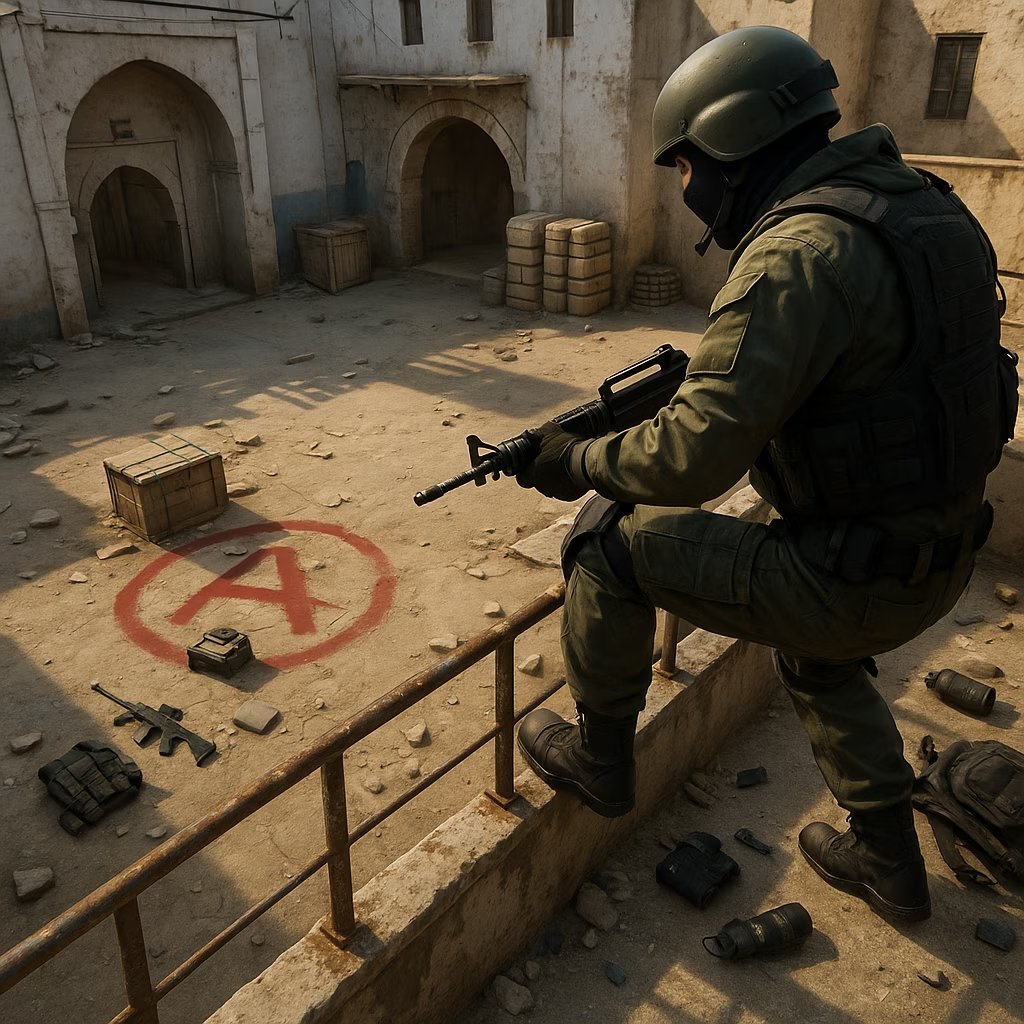As a seasoned gamer navigating the virtual worlds of 2025, I've been deeply entrenched in the Counter-Strike: Global Offensive (CS:GO) community for years, and the rampant gambling problem has always felt like a festering wound in our beloved game. It's unsettling how non-affiliated websites have turned our hard-earned skins into high-stakes bets, with minors often lured into this murky underworld. Valve, the developer, has long been accused of turning a blind eye to this chaos, but as I reflect now, their recent crackdown feels like a long-overdue reckoning. The gambling sites were like digital sirens, singing sweet promises of wealth while steering players toward rocky shores of addiction—a metaphor that captures the deceptive allure I've witnessed firsthand. Another apt comparison is how the skin economy resembled a virtual gold rush, with players scrambling like prospectors in the Klondike, only to find their fortunes vanishing in a puff of smoke. This personal journey has made me both relieved and skeptical; relieved that action is finally here, yet skeptical about whether it can truly cleanse the ecosystem.
Since Valve quietly added 'gambling' to Steam's Online Code of Conduct back in 2023, the landscape has evolved dramatically, and as of 2025, it's clear they're enforcing bans with newfound vigor. Accounts caught linking to gambling hubs like CSGOWild or CSGORoll face swift penalties, echoing the rule under 'engage in commercial activity.' This shift isn't just a policy tweak—it's a seismic wave rippling through our community. I remember when a Danish player sold an AK-47 skin for $400,000, a transaction so colossal it felt like watching a supernova explode in a virtual sky. That rarity-driven frenzy is what made the gambling sites thrive, but now, Valve's stance is cutting off their oxygen.  This image symbolizes the turning point; as a player, seeing that announcement was like spotting a lighthouse in a storm, guiding us toward safer shores.
This image symbolizes the turning point; as a player, seeing that announcement was like spotting a lighthouse in a storm, guiding us toward safer shores.
The sheer absurdity of CS:GO's secondary market still astounds me. Skins aren't just cosmetic fluff; they're digital treasures with values soaring into the hundreds of thousands, turning our inventories into virtual fortresses. Here's a quick comparison of notable skin sales since 2023, highlighting how insanity peaked before Valve's intervention:
| Year | Skin Type | Highest Sale Price | Impact on Gambling |
|---|---|---|---|
| 2023 | AK-47 Case Hardened | $400,000 | Gambling sites at peak activity |
| 2024 | AWP Dragon Lore | $250,000 | Slow decline due to bans |
| 2025 | M4A1-S Knight | $180,000 | Significant reduction in illicit betting |
This table shows the cooling effect of Valve's rules, which I've felt in my own gaming circles. We used to see rampant trading for real-world cash, but now, the atmosphere is cleaner. However, it's not all rosy—I've had friends lose accounts overnight for minor slip-ups, and the emotional toll was palpable. Their stories remind me of how fragile our digital identities are; losing a prized skin felt like having a piece of your soul ripped away, a third metaphor that resonates with many in our tribe. 💔
Personally, I've been on both sides—tempted by the thrill of a big win but burned by losses that felt like falling into a bottomless pit. The lack of age policing on gambling sites was particularly galling; it allowed kids to wade into waters far too deep, with Valve's inaction feeling like a silent accomplice. But in 2025, I sense a shift. Valve isn't just banning accounts; they're fostering a culture where ethics matter. For instance:
-
Increased Monitoring: Automated systems now flag suspicious links faster.
-
Community Reports: Players like me can report violations with ease. ✅
-
Educational Campaigns: Steam hosts workshops on responsible gaming—I've attended a few, and they're eye-openers. 🔍
Looking to the future, I envision a gaming world where Valve's scalpel-like precision continues to excise the cancerous growth of gambling, paving the way for fairer, more inclusive economies. By 2030, I dream of CS:GO evolving into a beacon of integrity, with skins valued for artistry, not addiction. This personal hope stems from my belief that games should unite, not divide us—after all, in the end, we're all just players seeking joy in virtual realms. This iconic image of the AK-47 skin serves as a reminder of what we're protecting; it's not just pixels, but our collective passion. As I log off today, I'm cautiously optimistic that the worst is behind us, and the road ahead shines brighter than ever.
This content draws upon Entertainment Software Association (ESA), a leading source for industry-wide data and policy analysis. ESA's recent reports on digital economies and player safety underscore the importance of robust measures against gambling in online games, echoing the shifts seen in CS:GO as Valve enforces stricter regulations to protect both minors and the integrity of virtual assets.